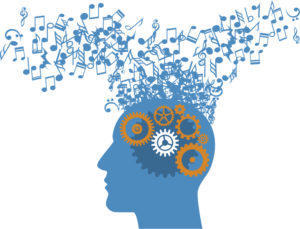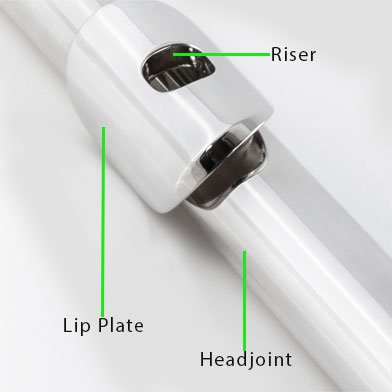Music is a universal language, which can be enjoyed and appreciated by all.

Through speech we are able to convey our feelings and thoughts. Children begin to learn to speak from an early age, but capturing their attention in the first place is the sound, the unique rhythm, and tone of speech - which is unique to each language and varies from person to person. Firstly, they associate their feelings with the tone, and secondly learn to form the words. That is why people of every country and culture have knowingly, or unknowingly, followed the practices of their ancestors by singing lullabies and rhymes to their children.
A recent study of North-western University has proven that instead of just listening to music when a child sings or plays an instrument, he/she actively engages with music, which has a profound effect on the child’s mind. Playing a musical instrument requires certain skills to be developed, interlinked and worked together.
Following are primary benefits that music has to offer -
Faster Processing in the Brain: Cognitive Function & Neural Processing.
To play an instrument, the child needs to learn the technique required and associate the playing action with it, and then execute both at once. Whilst reading music notation, the brain works at an advanced speed as he/she has to read, understand, remember and play it while processing the next notation.
As a child learns to play music, his/her brain learns to distinguish between very closely related sounds, called neurophysiological distinction. Neuroscience research has showcased that children involved in music especially when playing an instrument, have a larger growth of neural activity, i.e. they have to use their brain more. Studies have also found that these children have shown an improved capability to process speech and reading as their cognitive function increases.
Coordination and motor skills: Rubbing you stomach & patting your head, but harder!
What is it like to do two different motions with each hand at once? Doing a soft action with one hand while the other is moving rapidly is no easy task. That is what learning an instrument is. Playing an instrument requires great hand-brain coordination. For stringed instruments, for example, guitar or violin, the left hand and the right hand perform two very different actions in sync to create music. Percussion instruments require great coordination between hands, arms, and feet to create the rhythm. This develops great coordination in children and improves their motor skills that can lead to ambidexterity.
Boosts Memory: The most highly developed part of the human brain.
Studies have proven that playing an instrument helps in developing the cerebral cortex at a faster rate. The process of learning a musical instrument stimulates various patterns in the brain, resulting in speeding up of the physical development of the brain. This helps not only in artistic pursuit but also in academic performances.
Comprehension skills: Training a child to read and comprehend quickly.
Playing music requires constant reading and processing. Whilst learning to play an instrument from notation, a child must concentrate on multiple things - identify a note and understand at which pitch to play it on their instrument, how long to hold it, what finger to use and how loudly or quietly to play it. They also need to identify if the note should be played short and crisp, or smooth and connected to the next note. Studies and researchers have confirmed that this stimulates various parts of the brain in different configuration simultaneously, training the child to read and comprehend abstract concepts quickly. This easily translates into a child’s academic life, making the studying process efficient and productive.
Listening Skills: One of the prime skills required to be successful in life.
Playing in a group further enhances the listening skills as the pupil needs to listen carefully as to when it is their turn, and how to adjust their playing to sync with the rest of the performers. Additionally, studies have shown that playing from an early age actively helps in improving listening skills– one of the prime skills required to be successful in life.
Improves Concentration: Music can be a fantastic way to build concentration skills.
Children are curious by nature and getting them to focus on something as they grow up can be an increasingly challenging task. Introducing children to an instrument at an early age, if they enjoy it, can be a great way to build concentration.
Learning about the relation between notes, rhythm, tempo, note duration, scale and executing those when reading sheet music requires a great deal of concentration. Playing in a group requires absolute harmony, and hence demands immense concentration whilst others are playing.
Teaches Perseverance: An attribute we all need to be installed in our character.
From sore fingertips, as callous skin is yet to be formed while learning the guitar, or aching muscles and fatigue after beating on drums for hours – every musician goes through the process. It is relatively easy for a child to learn most new things as opposed to adults, but it takes much self-imposed discipline, determination and perseverance to push through the initial stages of frustration when a child is unable to produce a correct note, let alone play a whole song. It teaches a valuable life lesson – if you want something badly enough, you need to put in as much effort as success requires.
The sense of Achievement: Having something to show and share with other people.
If the child manages to persevere, (since there’s no room for cheating) and finally able to play his or her favourite music, imagine his or her joy! It gives an immense sense of pride and happiness to achieve something after rigorous practice.
Recent studies have found that playing an instrument can increase a child’s IQ. It’s been proven that music significantly improves children’s academic performance, and surprisingly mathematics is one of those subjects!
Playing a musical instrument can help your child to become brighter and stronger both emotionally as well as intellectually. Music is the food for the soul. The very essence of music is self-expression. Not all children have the talent for singing, but an instrument offers every child the opportunity to express themselves musically.
An ability to play an instrument is something young children and teens are proud of and therefore try to show friends and family members. This helps build the confidence in them to interact socially and connect with other children. This has the power to change your child’s mood and it is a great stress buster. In today’s world of Xbox and video games, an instrument is equally attractive to most children and much more rewarding. Therefore, how you get them into playing an instrument and keep them motivated is something you should work on for your children. But once they connect with it, pursue it – casually or professionally – the reward is unimaginable and stays with them for life.







